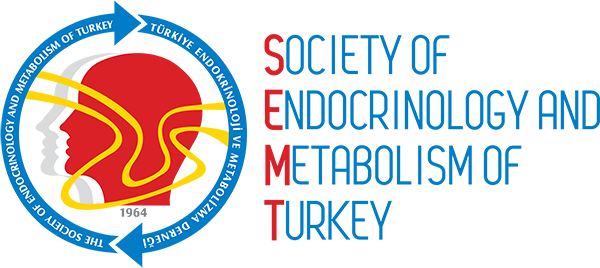ABSTRACT
Thyroid ophthalmopathy is the most common cause of bilateral or unilateral proptosis in adults. Since the recognition of autoimmune mechanisms in the pathogenesis of Graves' ophthalmopathy, a number of investigators have reported on the use of various immuno-suppressive agents. in this study, we aimed to evaluate the efficacy of pulse methylprednisolone therapy in Graves' ophthalmopathy. We included 9 patients aged between 27 and 70 (5 male, 4 female; mean age: 38±15.23 years) with Graves' ophthalmopathy in the study. The patients with persistent ophthalmopathy even after becoming euthyroid by 1.5 to 2 months of anti-thyroid medication with propylthiouracil were selected for pulse steroid therapy. Patients were administered 1 gr. methylprednisolone. Ophthalmologic examinations were performed and ophthalmopathy indexes were determined both at the beginning and at the end of the pulse therapy. Our results revealed that pulse steroid therapy was not a very satisfactory method to treat proptosis. On the other hand this therapy was found very promising for the improvement of soft tissue inflammation like chemosis, conjunctival injection and lid edema. We conclude that pulse therapy is an efficient method for well selected patients with thyroid ophthalmopathy, and that it is safe without metabolic or any other systemic side effects.
Thyroid ophthalmopathy is the most common cause of bilateral or unilateral proptosis in adults. Since the recognition of autoimmune mechanisms in the pathogenesis of Graves' ophthalmopathy, a number of investigators have reported on the use of various immuno-suppressive agents. in this study, we aimed to evaluate the efficacy of pulse methylprednisolone therapy in Graves' ophthalmopathy. We included 9 patients aged between 27 and 70 (5 male, 4 female; mean age: 38±15.23 years) with Graves' ophthalmopathy in the study. The patients with persistent ophthalmopathy even after becoming euthyroid by 1.5 to 2 months of anti-thyroid medication with propylthiouracil were selected for pulse steroid therapy. Patients were administered 1 gr. methylprednisolone. Ophthalmologic examinations were performed and ophthalmopathy indexes were determined both at the beginning and at the end of the pulse therapy. Our results revealed that pulse steroid therapy was not a very satisfactory method to treat proptosis. On the other hand this therapy was found very promising for the improvement of soft tissue inflammation like chemosis, conjunctival injection and lid edema. We conclude that pulse therapy is an efficient method for well selected patients with thyroid ophthalmopathy, and that it is safe without metabolic or any other systemic side effects.



.png)
.png)